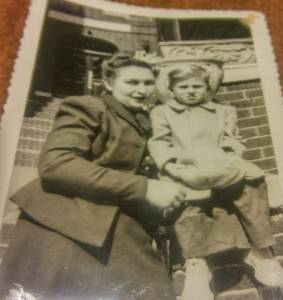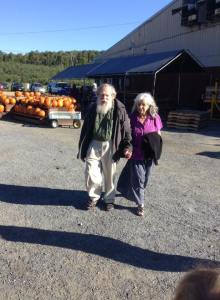Back in 2018, I interviewed several people for an article about what it means to be both Jewish and Catholic. The interview never made it to print for various reasons, but I have always wanted to share the conversation I had with my father.
He and my mother both grew up in Brooklyn with a cultural Judaism. They married young, had two children, became hippies, drove cross country and back, moved to Israel and back, dallied with Buddhism, moved to a ski lodge in Vermont, had a dramatic conversion to evangelical Christianity, briefly landed in a cult, had two more children (including me), and eventually made their way into the Catholic Church, where they stayed (and had four more children).

We were cultural Jews. We celebrated Chanukah, but it didn’t mean a whole lot. It was just something Jews did around Christmas time. We never had a “Chanukah bush!”

The only other thing we did in my family was we fasted on Yom Kippur. My father . . . I don’t even know what he believed. He felt a great lack in his life, because he had never been bar mitzvah’d. His parents wanted to get away from all that. He felt he had missed out, so when I was studying for bar mitzvah, I had to learn scriptures, and recite in front of the congregation in a synagogue, and he asked the rabbi if he could be bar mitzvah’d, in his 50’s.

“Yeah.”
“Have you been bar mitzvah’d?”
“Yeah.”
“We need one more for a minyan.”
I must have been in my early teens. I sat through the service that was meaningless to me, but on the other hand, I felt like I was doing something devout. After I was bar mitzvah’d, I took it somewhat seriously. I got phylacteries, and for at least a month I used to put on the tefillin every day and said the prayers. Eventually I got tired of doing it.

My mother was distressed. Ima’s mother was, too, even though they were less observant than my family.





How do you express your Jewishness now?

Have you encountered antisemitism in your lifetime?
Believe it or not, I have hardly any experience with antisemitism in my life, that I’m aware of. Growing up, I never ran into it because I was surrounded by Jews.





There’s nobody to ask anymore. There’s a lot of things I wish I knew, but now there’s nobody to ask.


Why would such a thing be necessary? I would feel less like myself. I would feel I had lost something, and I was less of the person I had been all these years. I don’t think I would feel like I had less of a relationship with God, but it’s hard to say what that loss would consist of.
Sometimes.What does that mean?

I’d love to go back. I think about it a lot, but I don’t think I’ll ever do it. It would mean more to me now. We were there for [a year, which extended into] a few weeks after the war in ’67, and we went into the Old City after the war. We were looking at the Via Dolorosa, and I saw lots of ancient sites, and then came up into some kind of building. We looked out a window, and there was the Western Wall, the holiest site in Judaism. It’s a relic of the temple, all that’s left of the wall that supported what the temple was built on. All these people praying, and I never went down to it. People make pilgrimages from the ends of the earth to get to it. I was there, and I didn’t even take five minutes to go downstairs and go to the wall. It just didn’t mean that much to me. I’ve always been ashamed that I never did.

My father died just about a year ago on April 3. We had been planning to celebrate Passover with him via Zoom, and instead ended up live streaming his funeral. This year, I was bracing myself for the first anniversary of his death, and then my mother died on March 12. I know what my father would say: The Lord giveth and the Lord taketh away. Blessed be the name of the Lord.










